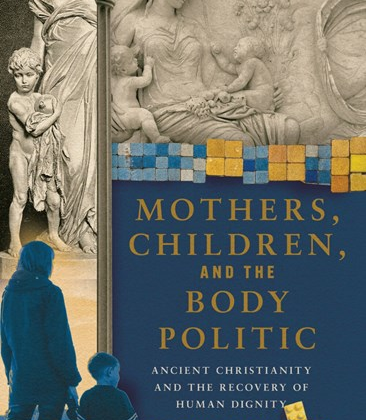

This past weekend, I finished working on the index for my forthcoming book, Mothers, Children, and the Body Politic: Ancient Christianity and the Recovery of Human Dignity. It will be out on October 15th, Vergil’s birthday!
The index is a reminder of the people, sources, and stories, ancient and modern, that work together in this book to tell of the similar disdain for human life in the pre-Christian pagan world and in the post-Christian present. It was Christianity, with its extraordinary doctrine of the imago Dei, that made a revolutionary declaration: every human being is unconditionally priceless in God’s eyes. And this declaration, of course, makes specific callings and requests on all believers.
And so, here is a glimpse of the book through five entries in the index.
Achilles 46, 53-55, 57, 124-25, 176, 184-85
Early in the book, I consider phenomena in our modern society that show a commodification of people. I see this commodification—pricing of people based on their value to their family and to the society—as really a devaluing of human life. We have a desire to engineer the ideal baby, the ideal child, the ideal person. But then, this is a natural desire. Consider Achilles, whose minor goddess mother held him by the heel and dipped him in the river Styx, all to make him invulnerable. Engineering the ideal baby at any cost can look like this.
Berry, Wendell 10, 18, 165, 192, 197, 200-08, 210, 219-20
I conclude the book with three “voices of life”—writers who, I argue, show us how to recover a way of speaking powerfully and beautifully about the unconditional preciousness of all people. Berry is one modern voice of life that I selected for this section (the other two are Perpetua and Augustine).
Gauls 75, 112, 114, 116-18, 120-21, 130-31, 216, 218 (see also genocide 16, 116-17, 127)
For one of Rome’s greatest generals, Julius Caesar, the Gauls were worth more dead than alive. Slaughtering as many as possible allowed him to gain military acclaim and political prestige. Caesar’s treatment of the Gauls, ultimately, is a clear example of the lack of regard for personhood that happens naturally in a world without the imago Dei. As I wrote recently for Christianity Today, two-thousand years of Christianity is “How We Learned to Hate Genocide.”
Oedipus 110, 123, 135-37, 209
Oedipus is an important figure for this book: the firstborn son of a royal family, his life, nevertheless, was not treasured by his parents. He is, I argue, a key case study who shows what happens in a world without a framework to hold all lives as priceless. If the value of each person and that person’s life is subjective, to be determined by someone else based on a set of varying criteria, no one is safe. Everyone is killable.
Thomson, Judith Jarvis 37, 215
Thomson’s famous defense of abortion as a woman’s right to choose featured the following scenario: imagine that a famous violinist’s circulation system has been attached to yours without your consent. Now you must keep him attached to you for nine months, else he’ll die. What will you do? Thomson’s response: if you didn’t agree to this, just disconnect him already.
If you guessed that I do not agree with Thomson, you are correct. For more details, and how we can respond to this sort of argument compassionately and theologically, relying on both the parable of the Good Samaritan and on the writings of Wendell Berry, you’ll have to wait until October!
***
Turning in the index marks the end of the writing and revising and editing process for this book. Next up: Christians Reading Pagans is under contract at Zondervan Academic, due to my editor on August 1st! It’s a book I’ve long wanted to write: a guide for Christians on reading the Greco-Roman Classics as Christians. I am hoping it will be useful for Classical Christian (home)schools, college classrooms, and curious readers of all ages.